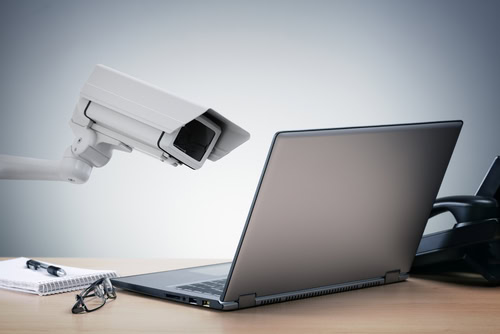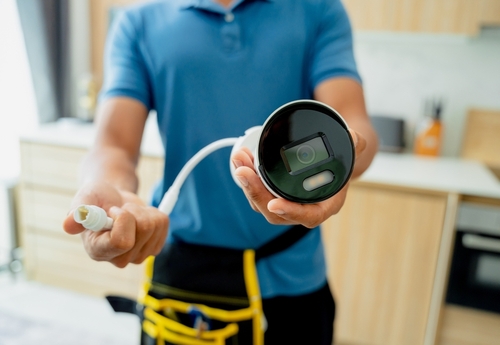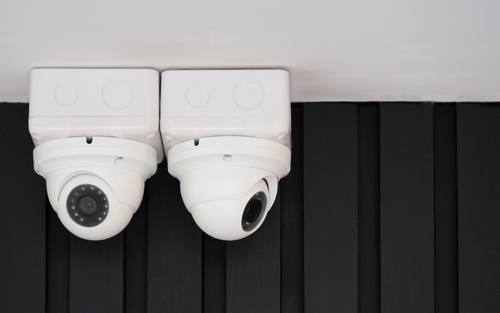
Different Types of Intercom Systems for Home and Business
October 2, 2023
Understanding PABX Systems: An Introduction
December 1, 2023Choosing the Right Door Access Control System for Your Needs
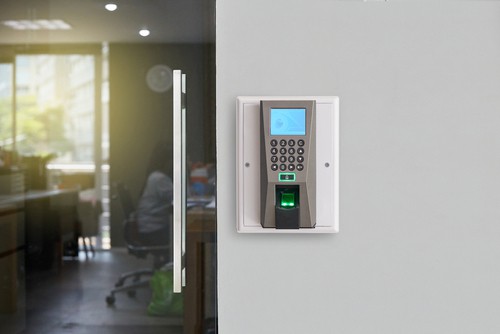
Choosing the Right Door Access Control System for Your Needs
Choosing the Right Door Access Control System for Your Needs. Access control systems are pivotal in enhancing security and efficiency in Singapore.
From homes to businesses, ensuring that the right people have access to specific areas is paramount in this bustling city-state.
In this comprehensive guide, we delve into the world of door access control systems, shedding light on choosing the right system for your specific needs in Singapore.
This article aims to provide you with in-depth insights into door access control systems.
Whether safeguarding your residence, managing access to your business premises, or enhancing security in an industrial setting, this guide will help you make informed decisions about selecting the right system.
Understanding Your Security Requirements
Assessing Your Specific Needs
1. Type of Premises (Home, Office, Retail, etc.)
Understanding the type of premises you need to secure is the first step in determining your security requirements. The access control needs of a residential property differ from those of a commercial office or a retail store.
2. Number of Entry Points
Assess the number of entry points that require access control. This could range from a single front door to multiple access points within a large office building.
Types of Door Access Control Systems
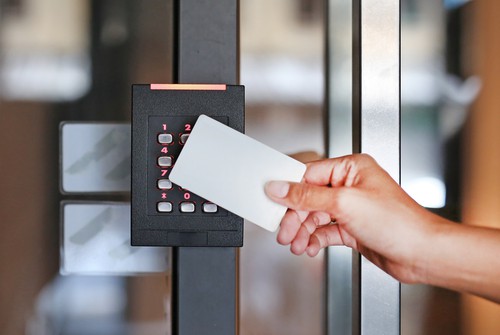
Keypad Access Control
Keypad access control systems rely on Personal Identification Numbers (PINs) for entry. They are cost-effective and straightforward, making them suitable for various settings.
Card Access Control
Card access control systems use RFID cards or smart cards for entry. They offer a balance between security and convenience, making them a popular choice in different environments.
Biometric Access Control
Biometric access control systems use unique biological traits, such as fingerprints and retina scans, for entry. They offer high levels of security and accuracy.
Mobile-Based Access Control
Mobile-based access control allows users to access premises through smartphone apps. It provides a modern and convenient approach to access management.
Intercom Systems
Intercom systems enable communication and remote access control through audio or video, enhancing security in a variety of settings.
Access Control for Different Locations
Residential Access Control
Smart locks and keyless entry systems provide homeowners with secure and convenient ways to manage access to their homes.
Residential access control can include visitor management systems, allowing residents to grant temporary access to guests.
Commercial Access Control
Managing access for employees and visitors is critical in a commercial setting. Access control systems help regulate who can enter the premises.
Time-based access control allows businesses to grant access only during specific hours, enhancing security.
Industrial Access Control
Industrial settings, such as warehouses and factories, require robust access control to safeguard valuable assets and sensitive areas.
Access control systems can be adapted to allow temporary access for contractors or service providers.
Connectivity and Integration
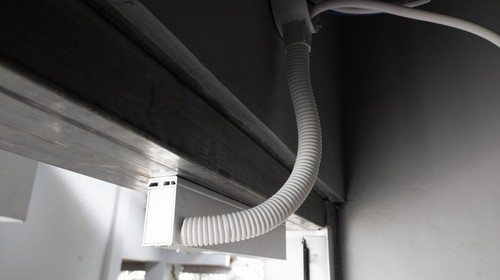
Wired vs. Wireless Systems
Choosing between wired and wireless access control systems depends on factors like infrastructure, flexibility, and the need for remote access.
Integration with Other Security Measures
Integrating access control with other security measures, such as surveillance cameras and alarm systems, enhances overall security.
Remote Access and Control
Remote access features allow users to manage and monitor access control systems from a distance, providing convenience and flexibility.
Door Access Control Hardware
Control Panels and Readers
Control panels and readers are the core hardware components of access control systems. They manage access permissions and verify user credentials.
Electric Locks and Strikes
Electric locks and strikes are essential for physically securing entry points. The access control system actuates them.
Exit Buttons and Sensors
Exit buttons and sensors allow users to exit a secured area while preventing unauthorized entry.
Installation Process

DIY vs. Professional Installation
Choosing between do-it-yourself (DIY) and professional installation depends on your technical expertise and the system’s complexity. Professionals can ensure a reliable setup, but DIY is an option for those with the necessary skills.
Positioning Access Control Hardware
Precise placement of access control hardware is vital for effective access management. Hardware should be installed strategically at entry points.
Wiring and Connectivity
Proper wiring and connectivity are essential for a reliable access control system. Effective wiring and cable management ensure a clean and organized installation.
Testing and Calibration
Thorough testing and calibration of the system ensure that it functions correctly. This step is essential to verify that the access control system is operating as intended.
Network Configuration and Security
Network Setup
Configuring the network for your access control system is crucial for seamless operation and remote access.
Security Measures
Implementing robust security measures, including user authentication and encryption, is essential to protect the system from unauthorized access and potential cyber threats.
Data Encryption and Protection
Data encryption and protection measures safeguard sensitive access control data, ensuring it remains confidential and secure.
Access Control Management Software
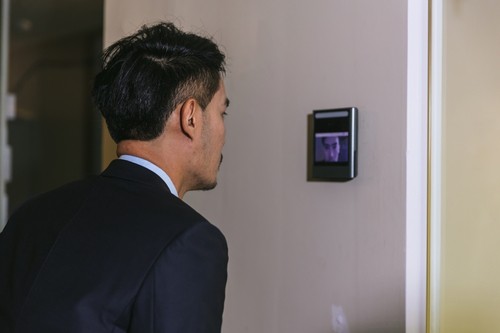
Access Control Dashboards
Access control dashboards provide an interface for managing and monitoring the system, allowing administrators to control access permissions.
User Management
User management features enable administrators to add, remove, or modify user access permissions as needed.
Reporting and Audit Trails
Reporting and audit trails record access events and activities, aiding in security monitoring and compliance.
Biometric Access Control Best Practices
Biometric Data Storage and Security
Biometric data storage and security practices are critical to protect sensitive biometric data from unauthorized access.
User Enrollment
Effective user enrollment processes ensure that biometric data is accurately collected and stored for authorized users.
Biometric Technology Advancements
Advancements in biometric technology, such as improved recognition accuracy, should be considered when selecting biometric access control systems.
Maintenance and Troubleshooting

Regular System Checks
Regular system checks and maintenance are essential to identify and resolve issues promptly, ensuring the access control system’s reliability.
Firmware Updates
Keeping access control system firmware up-to-date is crucial. Updates often include security enhancements and improved functionality.
Common Troubleshooting Issues
Preparing to troubleshoot common issues, such as access failures or system malfunctions, helps maintain the system’s effectiveness.
Frequently Asked Questions (FAQs)
What type of access control is suitable for my business in Singapore?
The choice of access control system depends on your specific security needs and the type of business. Consider factors like the number of entry points, the level of security required, and regulatory compliance.
How can I ensure data privacy and security with access control systems?
Data privacy and security can be ensured by complying with Singapore’s privacy laws, implementing encryption measures, and following best practices for data protection.
What are the legal obligations for access control data in Singapore?
In Singapore, legal obligations for access control data include complying with the Data Protection Act and privacy laws. Data collection, storage, and handling must adhere to these regulations.
What should I do in case of system malfunctions?
In case of system malfunctions, refer to the manufacturer’s troubleshooting guidelines or contact a professional service provider for assistance.
Choosing the Right Door Access Control System for Your Needs – Conclusion
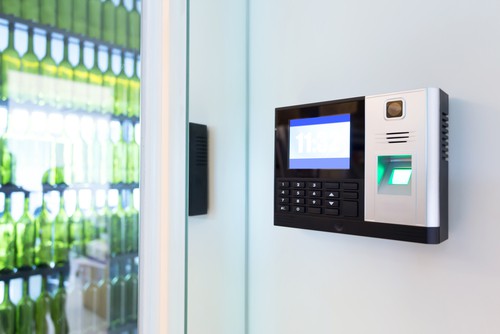
Selecting the right door access control system is critical in enhancing security and efficiency in Singaporean premises.
Whether you’re securing your home, office, or industrial facility, the right system provides peace of mind, convenience, and effective access management.
By following the guidance in this article, you’ll be well-equipped to make informed decisions when choosing a door access control system that suits your specific needs in Singapore.
These systems not only enhance security but also contribute to your premises’ overall efficiency and success.
Are you seeking professional and reliable CCTV installation services or door access control system installers in Singapore? Contact us today!

